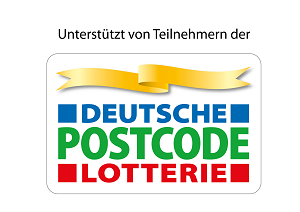The Dangers of Cashier Receipts
Women working at cashiers are exposed to high levels of BPA used on thermal receipts, resulting in harmful health effects and adverse effects during pregnancy
17.02.2015 |

BPA, Bisphenol A, is a hazardous chemical used in many goods such as plastic bottles, food containers, and the lining of food cans. However, BPA is also used on a wide variety of thermal cashier receipts such as shop and fast food receipts, airline tickets and ATM and credit card receipts.
Although governments and regulatory bodies have begun to monitor BPA in goods, receipts remain outside of this and are largely unregulated.
A study by the Journal of the American Medical Association found worrying correlations between the handling of receipts and the immediate levels of BPA found in the body. Over a two hour period those continuously handling receipts, such as cashier workers, experienced significantly heightened BPA exposure and transmission into the body. BPA is particularly harmful to pregnant women and young children due to their vulnerability to toxins at this time.
"Our research found that large amounts of BPA can be transferred to your hands and then to the food you hold and eat as well as be absorbed through your skin. BPA exhibits hormone-like properties and has been proven to cause reproductive defects in fetuses, infants, children and adults. BPA from thermal papers will be absorbed into your blood rapidly; at those levels, many diseases such as diabetes and disorders such as obesity increase as well. Use of BPA or other similar chemicals that are being used to replace BPA in thermal paper pose a threat to human health." (1)
Further studies have shown rapid increase of BPA levels in the blood through absorption via the skin after using hand creams or hand sanitizers and then handling receipts (2). Such products enhance the skins absorbability and therefore aid further transmission of BPA into the body.
It is recommended that pregnant women avoid handling receipts on a regular basis, specifically those working at cashiers. If handling must take place wearing gloves is strongly advised and it is also recommended to wash hands after use.
(1) Thermal Paper Cash Register Receipts Account for High Bisphenol A (BPA) Levels in Humans, University of Missouri-Columbia, October 2014 http://www.sciencecodex.com/thermal_paper_cash_register_receipts_account_for_high_bisphenol_a_bpa_levels_in_humans-144060
(2) Holding Thermal Receipt Paper and Eating Food after Using Hand Sanitizer Results in High Serum Bioactive and Urine Total Levels of Bisphenol A (BPA), Plos one Journal, October 2014 http://journals.plos.org/plosone/article?id=10.1371/journal.pone.0110509
Related News
WECF co-organising partner Green Pharmacy Conference 2017
The environmental cycle of medicines - an incentive for innovation in the human and veterinary medicine chain
21.09.2017
Recycling contaminates plastic children’s toys with toxic chemicals from electronic waste
A new global survey finds that recycling plastics containing toxic flame retardant chemicals found in electronic waste results in contamination of the world’s best-selling toy: The Rubik’s Cube.
20.04.2017
One step towards a safer blood bag
WECF speaker at final Seminar of the LIFE+ project PVC Free Blood Bag, 27-28 September, in Östersund, Sweden
11.10.2016
WECF sends letter to Dutch Secretary of State concerning EU policy on EDCs
In a joint statement WECF and the EDC Free Coalition ask Dutch State Secretary Dijksma to insist on major changes at the Environmental Council meeting to protect our health and environment.
21.06.2016
Commission's EDC criteria proposal: More humans will have to be harmed before action is taken
The European Commission presented today its proposal for criteria to identify endocrine disrupting chemicals (EDCs). WECF and the EDCfree Coalition condemn strongly the decision.
15.06.2016




































